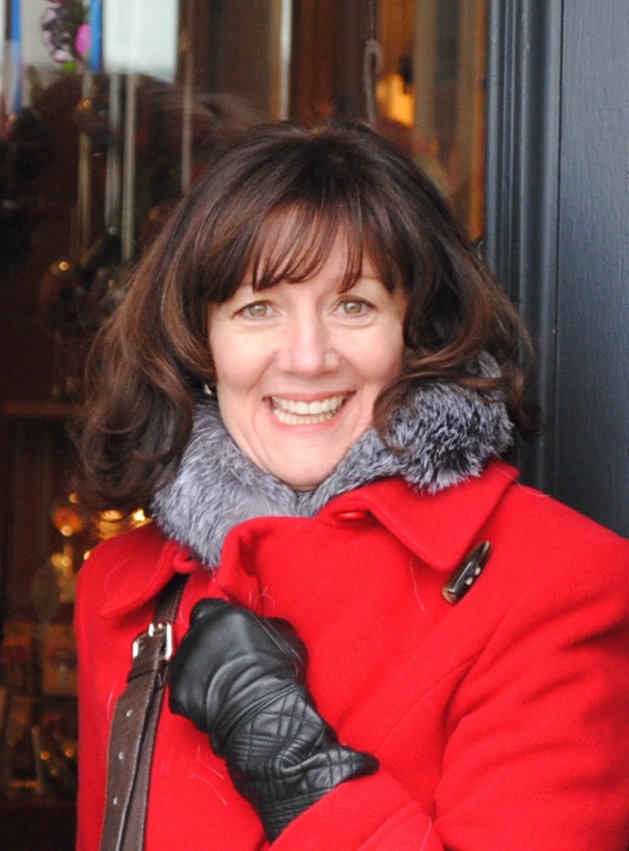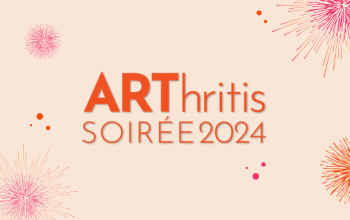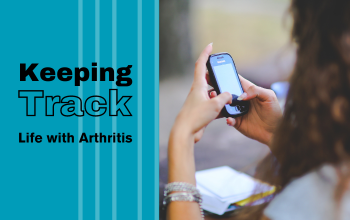News
Nadia Prestley’s Story
Most of us plan for the future we want, but a diagnosis of rheumatoid arthritis can send our future plans into a tailspin of uncertainty. Before my official diagnosis of rheumatoid arthritis (RA), I was a raising my family, working full time, commuting a fair distance to work, and maintaining my home. I had also started a big project at work, so when I began experiencing extreme fatigue and pain, I attributed the symptoms to the craziness of life.
I moved forward with the help of over-the-counter pain medications but felt miserable. I use the word ‘miserable’ because constant pain and fatigue “beats you down” and takes the joy out of life, especially when you are unable to identify why it’s happening. When I saw my doctor about it, he checked my heart health and did the routine blood tests. My heart health was good, and my blood tests were normal. Great; nothing to worry about, and so I continued to live as if I were healthy!
But why was I so tired? And why did my feet and hands hurt so much? Looking back, I’ve tried to pinpoint the reasons I didn’t pursue the answers to those questions, and I came up with a list. The top reason would be that I was just too exhausted – ironically, one of my symptoms was actually making it difficult for me to pursue the answers I needed – I just wanted to rest or sleep whenever I had a free moment! Along with fatigue were: the lack of education regarding the symptoms of rheumatoid arthritis, a hectic schedule which left little time to see a physician, a stoic attitude that negated the seriousness of my condition, a value system that honours one’s ability to persevere in the face of pain, and a habit of deflecting health issues onto the stresses of everyday life.
Along with fatigue were: the lack of education regarding the symptoms of rheumatoid arthritis, a hectic schedule which left little time to see a physician, a stoic attitude that negated the seriousness of my condition, a value system that honours one’s ability to persevere in the face of pain, and a habit of deflecting health issues onto the stresses of everyday life.
After reviewing my list, I not only realized there were many variables at play, I also realized I needed to tweak my value system and habits in order to remove any barriers to my wellness.
Accommodating the pain
It wasn’t until I saw an internist, Dr. O’Brien, that the signs of RA were pointed out to me. Dr. O’Brien had been treating me for gastroesophageal reflux disease (GERD), and during one of my visits he asked me why my feet and hands were swollen and hurting. The blood test he ordered confirmed what he suspected, a positive Rheumatoid Factor – an antibody that, if it is present, will help your doctor know if you have RA. Not all rheumatoid arthritis patients test positive for this antibody; luckily, I did, and this expedited the treatment. Thank you, Dr. O’Brien!
To say I was shocked, is an understatement. I was 48 years old – my perception was that you had to be really old to get this type of arthritis. Apparently not; I’ve since learned that children can develop what is referred to as juvenile idiopathic arthritis (JIA), previously referred to as juvenile rheumatoid arthritis. And, what I didn’t realize was the intensity of the pain RA could generate. I always thought I had a high pain threshold, and the doctors who have performed certain painful procedures on me, have confirmed my assumption! But I was not prepared for what RA could dish out.
I remember lying in bed trying to describe the horrible pain. Everything hurt – it felt like I had hot razor blades in every joint in my body, and when I tried to move, I felt as though these hot razors were slowly slicing my flesh – excuse the morbid explanation but it is the only way I can describe it! Before the pain became unbearable, I downplayed the reality of the situation and continued to live life as if unaffected by the disease. But as the disease progressed, reality sunk in and lifestyle changes had to be made to accommodate the excruciating pain, exhaustion, lack of mobility, and depression. Trying to preserve the way I operated in the world in the past, was negatively affecting my future – I had to find ways of living my life in a way that respected my health. It wasn’t easy and I did go through periods of sadness, anger and uncertainty. I was uncertain about how the people close to me would react to my lifestyle changes. I remember well the questions that filled my head:
- Will my family members be able to cope when I make changes?
- Will my friends be supportive?
- When I explain my challenges to people, will they think I’m complaining?
- What does the future hold for me?
New beginnings
Thanks to new treatments, my life is not the nightmare it once was when I was unable to climb stairs or hold a spoon to feed myself. And, I was fortunate to be able to volunteer with Arthritis Research Canada, where I learned a lot about my disease and how to manage it. I was introduced to exciting new arthritis research findings, and I realized the positive consequences of disseminating this research so that it is understandable and accessible to ALL.
Having been a victim of misinformation and a medical system that did not recognize my symptoms, I appreciate the importance of arthritis education. And, volunteering at Arthritis Research Canada helped reassure me that these scientists are working incredibly hard to improve the quality of our lives – we arthritis patients are not forgotten!
Breakthroughs in arthritis research have provided new treatments that enable people afflicted by RA to live a good quality life, one filled with new beginnings. I call them new beginnings because, as we make changes that benefit our health, we enter a world of discovery. We learn new things about ourselves and about the people in our lives, we learn to make trade-offs that enable us to continue doing the things we value most, and we tap into new feelings, talents, and strengths we never knew we had. Eventually the changes we make become familiar and we begin to grieve a little less for the life we had before we developed arthritis.
I have made lifestyle changes and have committed to medical treatments that have made my life worth living. Enbrel, a biologic medication, has been the most helpful in alleviating the unbearable pain. From a psychological perspective, I’ve learned the importance of not discounting my feelings. I still have the odd day when I’m sad that I developed RA, but I let myself feel that disappointment and share that disappointment with the people in my life. I strongly believe that if we are to educate people about this awful disorder, we have to speak the unedited truth about how it affects us. But, most importantly, I’ve stopped counting the things I can’t do, and now concentrate on the things I can do. So, how do I imagine my future now? I will let the words of Gertrude B. McClain be my voice:
It’s only the beginning now, a pathway yet unknown
At times the sound of other steps, sometimes we walk alone …
…The years will never take away, our chance to start anew It’s only the beginning now; so, dreams can still come true.





















































